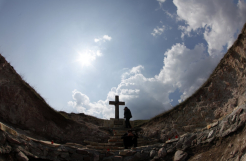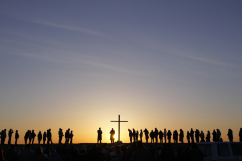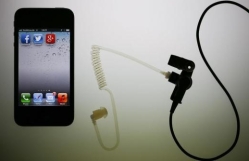"You faithless generation," said Jesus, "how much longer must I be among you?" (Mark 9:19)
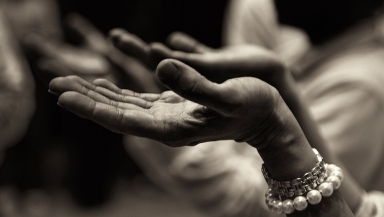
How much faith do you have when you pray? Do you feel it is sufficient?
The author, broadcaster and charity worker Joni Eareckson Tada – a quadriplegic since a diving accident – tells how one day she was approached by an enthusiastic young man who assured her that if she had enough faith, and there was no unconfessed sin in her life, she would be healed. You can read Joni's response to him at the start of her book, A Place of Healing, and we'll come back to her thoughts in a moment.
But it may well be that you have found yourself wondering whether if you had more faith, then maybe more of your prayers would be answered positively. Or perhaps you have prayed for someone else and then wondered if it was their lack of faith which meant things didn't work out as you had hoped.
Similar questions will have been going through the mind of some of those Jesus encounters in Mark 9:14-29. He finds the disciples with a large and argumentative crowd buzzing around them, and so Jesus asks what is happening.
A man answers, telling Jesus he had brought his afflicted son to the disciples and found they were unable to do anything to help. Jesus responds: "You faithless generation! How much longer must I be among you?" It's a strong response, and must have left his hearers wondering just how much faith they did need.
Jesus calls out the father and elicits some more details. The man concludes by declaring: "If you are able to do anything, have pity on us and help us." And Jesus responds: "If you are able? All things can be done for the one who believes!" (v23).
So just how much faith do we need to feel? Is it like some state of emotional certainty? Should we work ourselves up into 'believing' six impossible things before breakfast in order to force God into granting our wishes?
The father's response to Jesus' words has become a classic prayer: "I believe," he declares, "help my unbelief!" And the boy is healed.
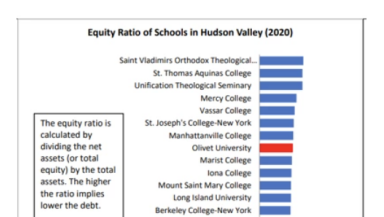
Now there are some things here that may yet puzzle us, not least perhaps the full meaning of some words Jesus says about prayer later on (v29) – though we can certainly grasp he is stressing its vital importance. But what's clear is that the father's emotionally-uncertain response counted as "enough" faith in Jesus' eyes. And the reason is simple: faith is not about how we feel, but about where we look. And this man is looking to Jesus.
The devotional writer Ole Hallesby, commenting in his classic Prayer, says: "We should notice what judgment Jesus passed upon this doubting, unstable, shaky condition. In his eyes this was faith." Why? Hallesby answers: "Because it was characterised by the essence of living faith: it went to Jesus." Thus, he concludes, faith is not dependent on our emotions, or on trying to force ourselves to feel something. Rather, it is simply a matter of bringing everything to Jesus.
Jeremy McQuoid writes: "It is not the size of our faith, but the power of our Saviour that matters. You may feel just as fragile as this broken father, bewildered by life scenarios that are as horrendous as his... If that is where you are today, come to Christ with whatever scraps of faith you have, even if it is no more than saying, 'Help me, Lord,' and watch what Jesus will do."
Or as Joni puts it in A Place of Healing, in the Bible, "faith... is not the focus. The focus is always on Jesus Christ and his will for those who suffer. To possess great faith is to believe in a great Saviour."
And so we bring the complexity of our own particular situations and simply pray: "Lord, I believe. Help my unbelief! Amen."
The Rough Guide to Discipleship is a fortnightly devotional series. David Baker is a former daily newspaper journalist now working as an Anglican minister in Sussex, England.











